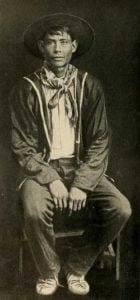Miles, Elizabeth E. “Betty” Mrs. – Obituary
Elizabeth E. “Betty” Miles, 70, of Salem, a former longtime Granite resident, died Dec. 29, 2004, after a long battle with lung disease. At her request, there will be no memorial service. She was born on Lopus Island, Wash., on Oct. 26, 1934, and spent her early years in the Puget Sound area. She married James L. Miles on Nov. 3, 1956. Jim was in the U.S. Air Force. As a military family, they lived in Japan for several years where they adopted two daughters, Tammie from Japan and Linda from South Korea. They returned to the United States and … Read more

